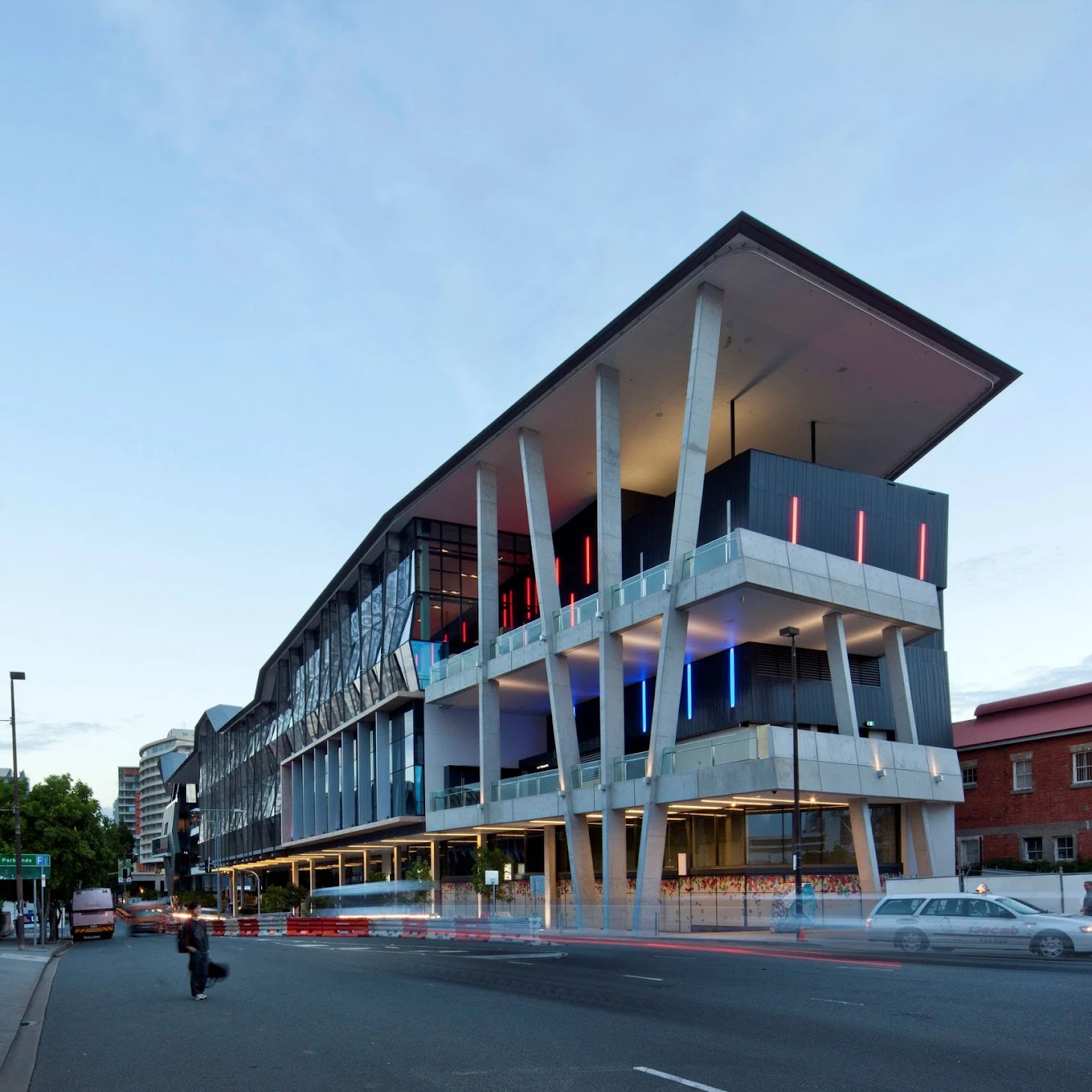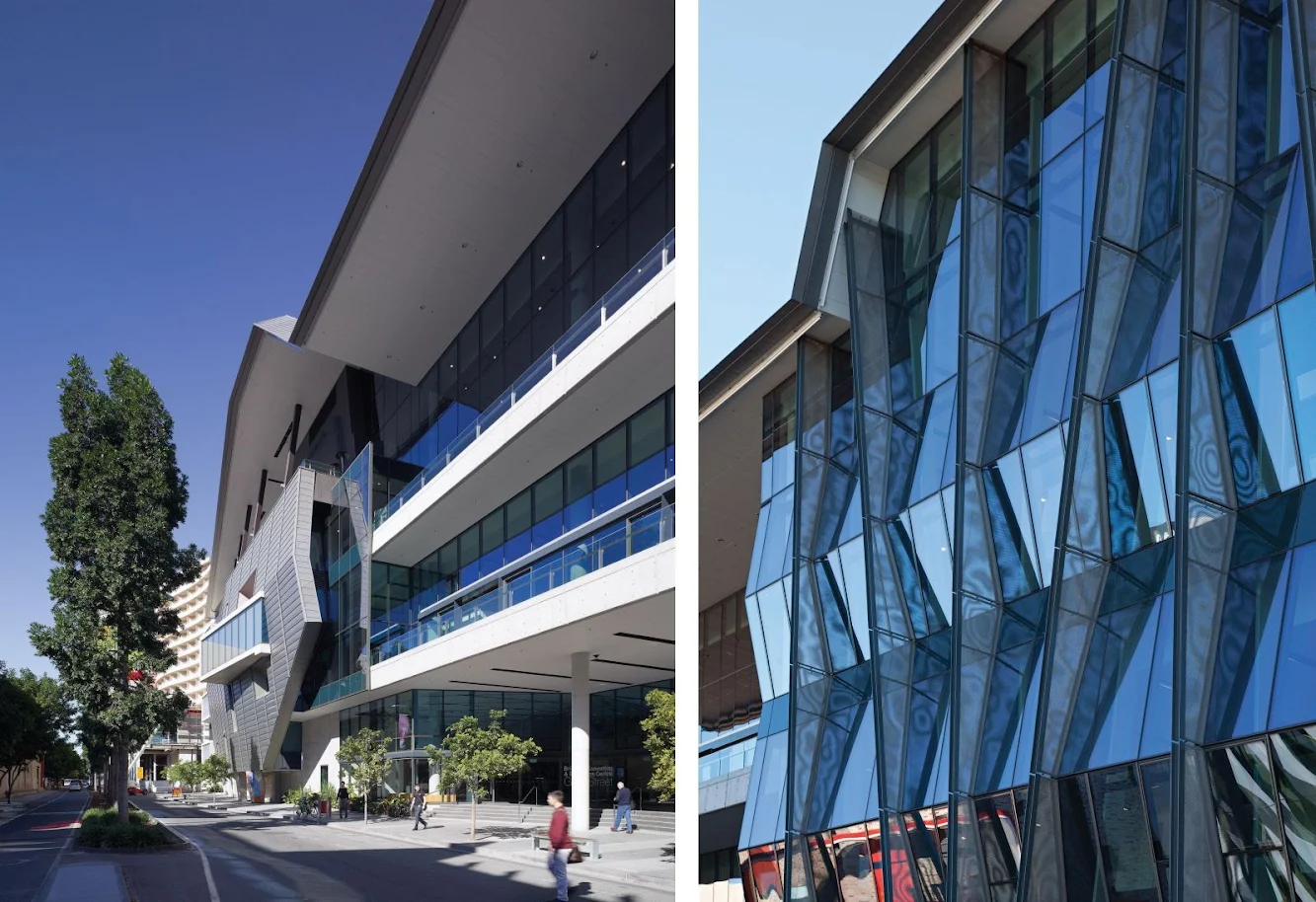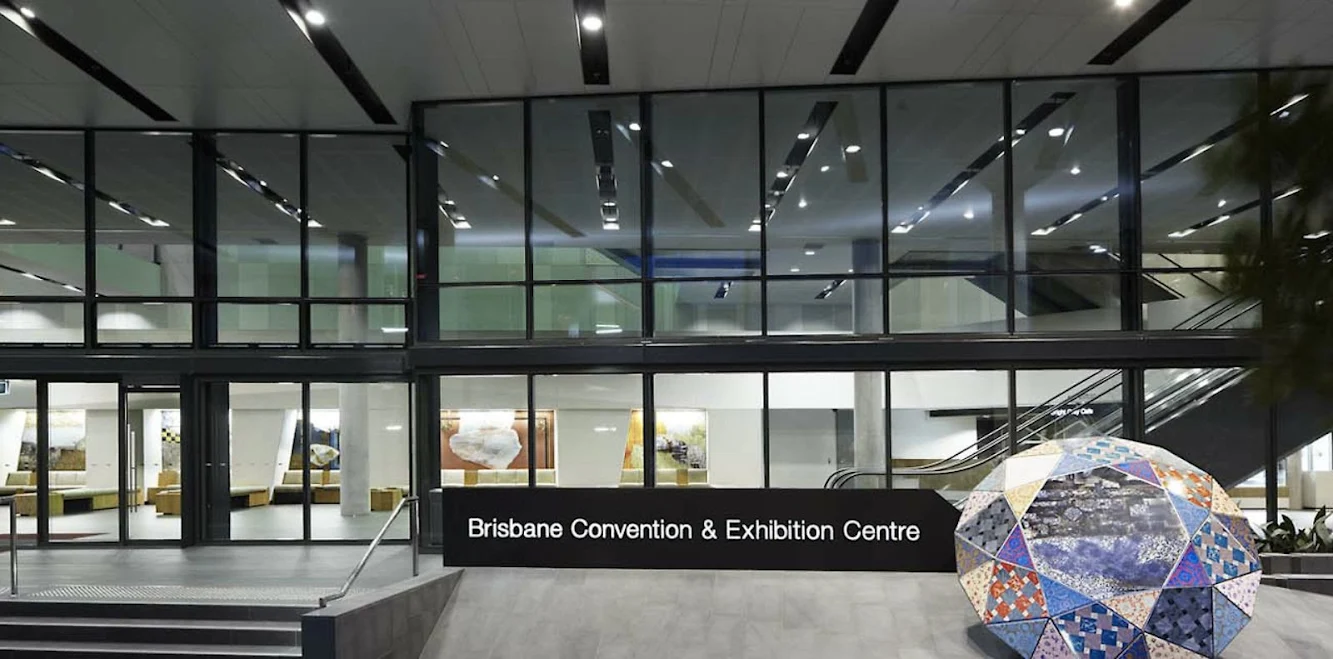
Otherwise known as 'Bcec on Grey Street', this expansion of our practice's 1996 exhibition and convention centre provides it with a frontage to South Bank that was not previously possible.

The expansion consists of 5 levels that enable a connection to be made over the South Brisbane rail corridor into the upper level of the original building which was substantially modified in the process.

The main challenge of the design was, however, to satisfy a brief for two new auditoria, a ballroom and various meeting rooms on a strip of land 30 metres in width and some 200 metres long.

It was largely resolved by stacking the two auditoria such that they are accessible from each of the four upper levels, with street edge circulation corridors providing access to the meeting and ballroom spaces.

A full height atrium intervenes between these zones, lit from above. the main enjoyment in designing the expansion was in how architecture can animate the street experience over such a distance.

The narrow site width was somewhat relieved by an allowance to cantilever above part of the footpath, such that the architectural solution entailed structural complexity in designing it to vary along the length.

It is for this reason the project is included in the section 'Art and Structure', although not as obvious as the Kurilpa Bridge. the shifting façade rhythm is inspired by the work of Brisbane artist Lincoln Austin with whom we have had a long association and engaged on several projects.

He was, however, not directly involved in this project, and another artist, Bruce Reynolds, was commissioned for a series of sculptures, wall pieces and reliefs that accompany movement from the street and up through the atrium space.

These works interrelate familiar patterns of Brisbane's domestic architecture to aspects of South Bank's environmental history. the form of the expansion does not draw upon any part of the original exhibition and convention centre, which required much more challenging spans.

This distinction is intended to clarify the staging of the combined building's evolution and to generate a different experience of place responsive to a different context and time.












Location: Brisbane, Australia Architects: Cox Architecture Area: 25,000 m2 Year: 2012 Client: South Bank Corporation Photographs: Angus Martin, Christopher Frederick Jones, Florian Groehn